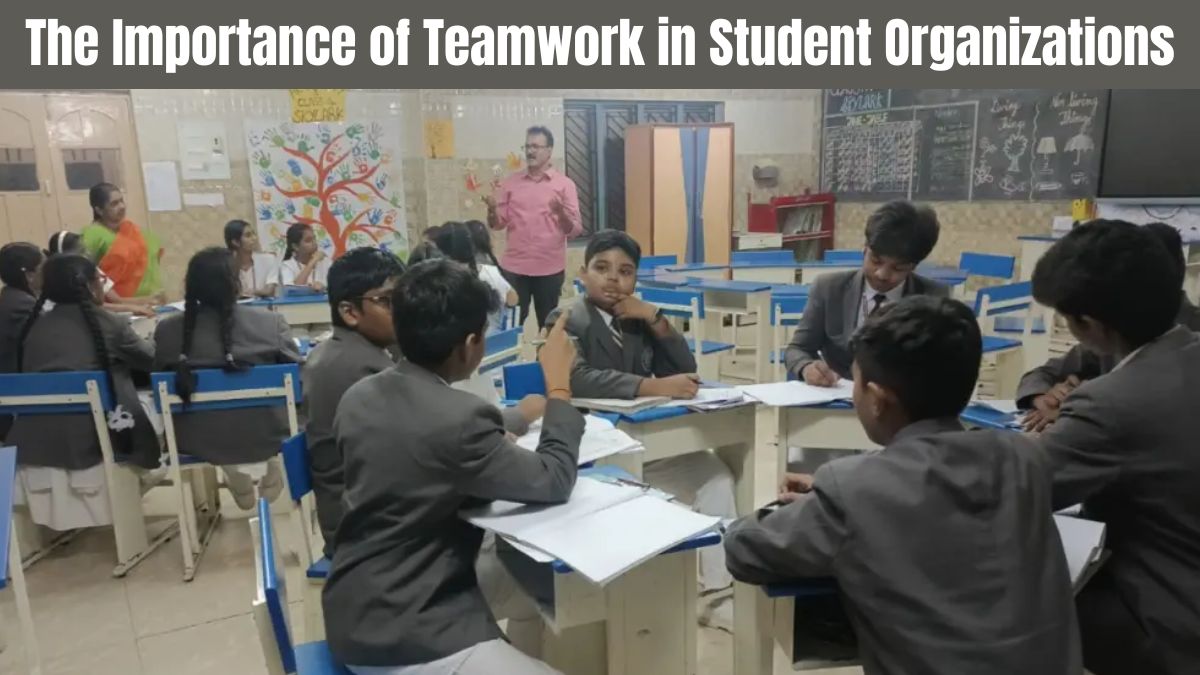Introduction: In today’s time, education is not limited to the four walls of the classroom. The real development of a student happens when he takes part in various activities, organizations and social work outside the classroom. The importance of student organizations starts from here. These organizations teach students leadership, communication skills, time management and most importantly teamwork.
Teamwork is not just a process of working together, but it is an art of life. When students with different backgrounds, thinking and abilities work together for a goal, the result that comes out of them is invaluable not only for the organization but also for personal life and future success.
What is teamwork and why is it important?
Teamwork means a group of people working together for a common goal. This becomes even more important in student organizations because here students of different interests, cultures and ideologies come together.
If a student organization has to be made successful, then it is not possible with the efforts of only one person. Ideation, planning, implementation and evaluation—all these stages are incomplete without teamwork.
Major benefits of teamwork in student organisations
Development of leadership skills: When students work in an organisation, they are not just followers but gradually learn leadership roles as well. Teamwork teaches them how to motivate a team, how to make decisions and how to move forward taking everyone along.
Improve communication skills: A successful team can only be formed when its members communicate openly. While holding regular meetings, discussions and planning events in student organisations, students develop effective communication skills. This skill is very helpful in their personal and professional life later on.
Opportunity to learn from diversity: Every student brings different experiences and perspectives. When they work together, they learn from each other. This diversity not only makes the organisation creative but also makes students tolerant and open-minded.
Problem solving ability: Teamwork often presents challenges—sometimes lack of time, sometimes lack of resources, sometimes conflict of ideas. In these situations, students learn to find solutions to problems collectively.
Shared responsibility and trust: Teamwork teaches students that success and failure are shared. When a project succeeds, the entire team takes credit, and when it fails, everyone learns from it. This strengthens mutual trust and a sense of cooperation.
Role of teamwork in student organizations
Suppose a cultural event is to be organized in a university. For this, the student organization will have to work together:
- someone will take responsibility for promotion,
- someone will handle stage management,
- someone will welcome guests,
- someone will provide technical support.
If there is no coordination in all these tasks, the event will fail. But when everyone works together, the event not only succeeds, but the students also get a great experience.
Life skills gained from teamwork
Student organizations are not just a club or society; they teach great life lessons. The skills that students gain from teamwork are:
- Time Management: Completing the task on time.
- Decision Making: Taking the right decision according to the situation.
- Emotional Intelligence: Understanding the feelings and viewpoints of other team members.
- Conflict Resolution: Resolving disputes peacefully.
- Discipline & Commitment: Being responsible and honest towards work.
Challenges and their solutions
Although teamwork gives many benefits, it also comes with some challenges.
- Conflict of ideas: Every student has a different thinking, which can lead to disagreements.
- Solution: Use methods like open discussion and voting.
- Lack of communication: If there is no communication among the team, the work will be affected.
- Solution: Regular meetings and clear responsibilities.
- Uneven distribution of work: Sometimes some students do more work and some less.
- Solution: Equally distribute tasks and fix accountability.
- Difficulty of time management: It can be difficult to balance studies and organization activities.
- Solution: Make a schedule and set priorities.
Contribution of teamwork in future success
In today’s world, whether it is a job or entrepreneurship, teamwork is the most important skill. Employers prefer candidates who have the ability to work with a team. Student organizations provide the foundation for this skill.
When students learn teamwork while being in an organization, they are able to work better in companies, institutions or startups later on. This is beneficial not only for their career but also for their personal relationships and social life.
Conclusion
Teamwork in student organizations is not just an activity but a path to future success. It teaches students that it is better to move forward together than to move alone. It not only makes the organization successful but also improves the personality, skills and life attitude of the students.
